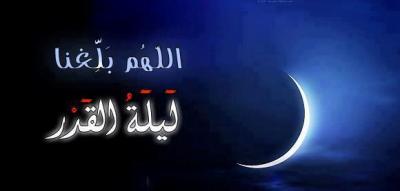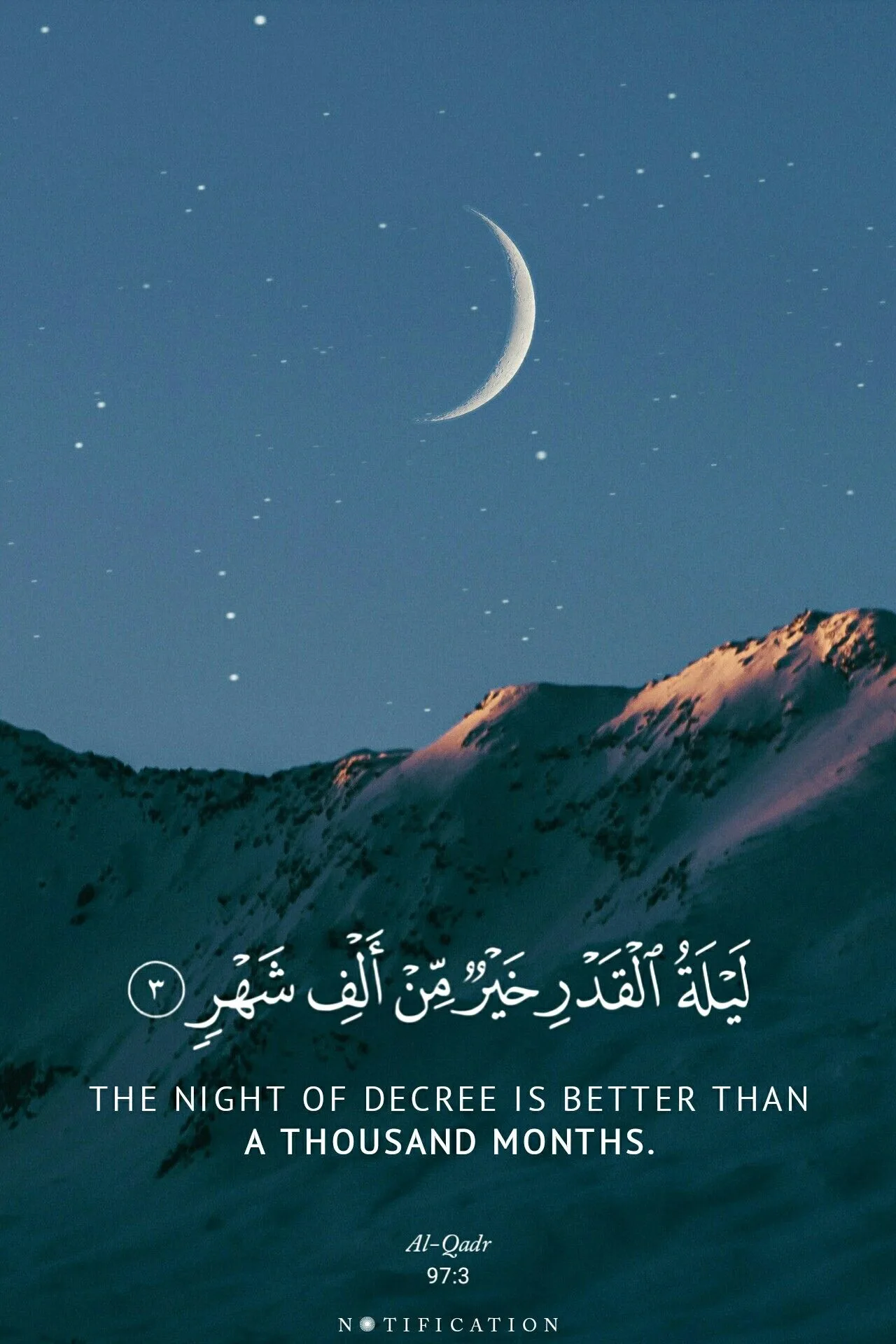 One of the most distinctive aspects of the month of Ramadhan is that it includes lailatul qadr (the night of power), which is the most blessed night of the year. This is that very night in which Allah Ta’ala chose to reveal the Holy Quran upon our beloved Rasool (s.a.w.). This is also the night wherein Allah decides the destiny, sustenance, birth, and death etc. for His creation. It is mentioned in the Holy Quran that this night is better than a thousand months (83 years & four months) as Allah himself speaks:
One of the most distinctive aspects of the month of Ramadhan is that it includes lailatul qadr (the night of power), which is the most blessed night of the year. This is that very night in which Allah Ta’ala chose to reveal the Holy Quran upon our beloved Rasool (s.a.w.). This is also the night wherein Allah decides the destiny, sustenance, birth, and death etc. for His creation. It is mentioned in the Holy Quran that this night is better than a thousand months (83 years & four months) as Allah himself speaks:
SIGNIFICANCE
“The night of al qadr is better than a thousand months.” (verse 3 Surah Al Qadr).
This means the worship performed in this night brings more reward than that worship carried out for the period of a thousand months.
In the authentic teachings of Rasoolullah (s.a.w.), it is mentioned that Allah Ta’ala showers his special mercy in this night towards the inhabitants of the earth, accepts the duaas made by his servants and forgives all those people who repent sincerely, as Rasoolullah (s.a.w.) has stated in a hadith
“Whosoever stood up in front of Allah on the night of qadr with Iman and true conviction of attaining reward from Allah, in return, Allah will forgive all his previous sins.” (Muslim)
WHEN?
According to authentic sources lailatul qadr falls in any one of the last five odd nights of Ramadhan i.e. 21, 23, 25, 27 and 29th alternating each year, as we are told in the hadith related by Ibne Umar (r.a.), Rasoolullah (s.a.w.) said ” …and, search for lailatul qadr in the odd nights of the last ten days of Ramadhan.”
WHAT SHOULD BE DONE IN THIS NIGHT?
In this night a person should make worship of Allah Ta’ala exclusively, even though there is no special form of worship prescribed for this night. One can engage in the offering of nafl prayers as much as possible or in supplications, in the recitation of the Holy Quran or by any other good deed, which is not contrary to the Shariyyah.
Since this is the night wherein Allah sends his special blessings from the heavens upon the earth, being so blessed that even the angels from the heavens descend upon the earth and convey salaams to every believer as it is narrated on the authority of Ibne Abbas, that Rasool (s.a.w.) had said, “…all those angels who are stationed by the sidratul muntaha (lote tree of the utmost boundary beyond which none can pass) descend with the angel Jibraeel (a.s) to the earth and there remains no male or female believers whom they do not convey salaams to, exempting the person who drinks liquor or consumes pork”. (Bukhari & Muslim).
Verily, one who does not derive benefit, and does not value this golden opportunity for the worship of Allah Ta’ala is a sign of total ignorance. This is the reason why Rasoolullah (s.a.w.) has stated
“The person who deprives himself from the blessings of Lailatul qadr, indeed has deprived himself of all good and none other than an ignorant person is deprived from such good.” (Ibne Majah).
Considering this hadith, we should attempt to spare some time for the worship of Allah Ta’ala on this auspicious night.
The most profound way to derive benefit from the blessings of this night, is to stay awake for the whole night and spend it in prayers, but people who cannot do so, for any reason, should at least spare a reasonable portion of the night for Allah. Some rakaahs should be offered in the least, after midnight as tahajjud, the Quran should be recited, duaas be made, and any form of zhikr should be constantly uttered.
Once, the beloved wife Aiysha (r.a.) inquired from Rasoolullah (s.a.w.) as to what duaa should be made on the lailatul qadr, upon this Rasoolullah (s.a.w.) taught her the following duaa ” Oh, Allah you are surely most forgiving and merciful, you love forgiving, so do forgive me.”
WHAT SHOULD NOT BE DONE IN THIS NIGHT?
We should also keep in mind that this night is meant for developing a special connection and bond with one’s creator, this is a night for devoting oneself to Allah Ta’ala with one’s soul & heart. It is seldom that this purpose be achieved in congregations & assemblies. This is the reason why it is not advisable to hold ceremonies or deliver lengthy talks and lectures or illuminate the mosques. Rasoolullah (s.a.w.) never tended to celebrate this night through lectures, meetings, gatherings, distribution of food or even by offering prayers in congregation, rather he used to individually perform acts of worship in solitude.
Indeed the blessings of our Lord are innumerable, but fortunate are those who reap them and regard them as significant. Islamcan.com


